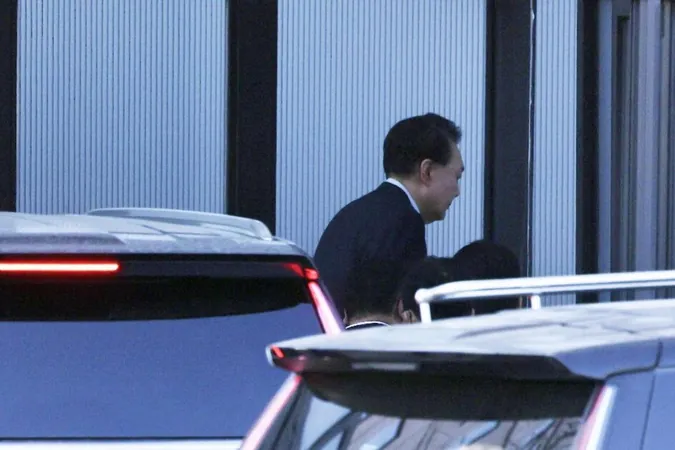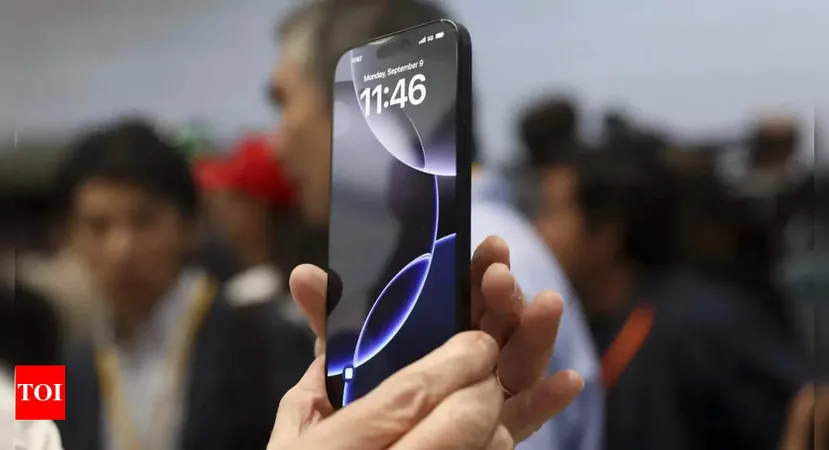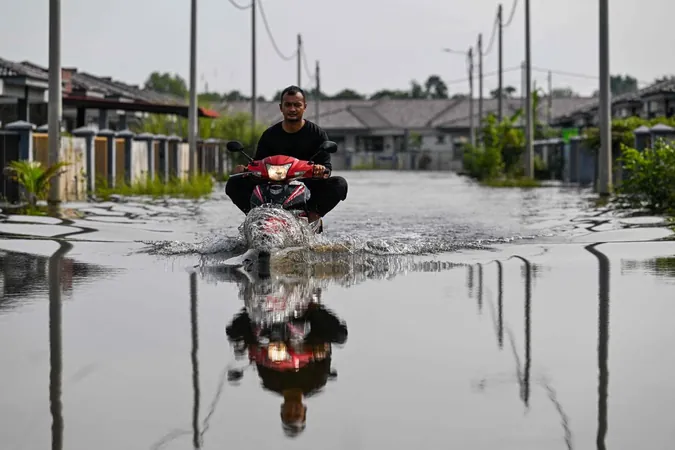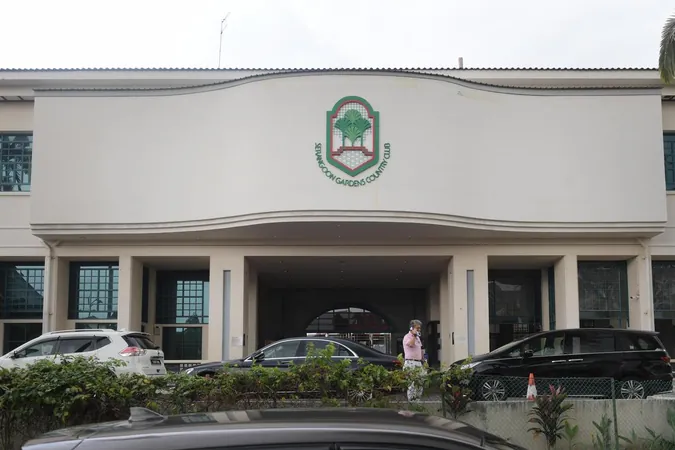
South Korea's Historic Arrest of Impeached President Yoon Suk Yeol: A Turning Point in the Nation’s Political Landscape
2025-01-15
Author: Rajesh
Dramatic Turn of Events
SEOUL – In a dramatic turn of events, South Korea's embattled and impeached President Yoon Suk Yeol was arrested on January 15, facing serious allegations of insurrection. His decision to comply with the investigation comes amid fears of escalating violence, concluding a tense standoff that has gripped the nation for weeks.
A Significant Moment in Political History
Yoon’s arrest marks a significant moment in South Korea's political history, being the first time an incumbent president has been taken into custody. The arrest was executed by the Corruption Investigation Office for High-ranking Officials (CIO) at 10:33 am local time, stunning many observers within one of Asia’s most evolved democracies, which has seen a history of former leaders being prosecuted.
Background and Circumstances of the Arrest
Following a tumultuous period that began with his controversial declaration of martial law on December 3, which shocked the public and ignited widespread protests, Yoon had retreated to his hillside residence, surrounded by a formidable security detail. Just prior to his arrest, tensions peaked as over 3,000 police officers surrounded his home in an effort to take him into custody.
Yoon's Statement and Legal Challenges
In a statement, Yoon expressed his regrets over the situation, stating, “When I saw them break into the security area using firefighting equipment today, I felt compelled to respond to the CIO’s investigation. While I believe this investigation is illegal, I wanted to prevent any bloodshed.” His arrival at the anti-corruption agency's offices was closely monitored by both media and supporters alike.
Legal Framework Under Scrutiny
The legal framework around Yoon’s arrest is still under scrutiny. His legal team claims that the arrest warrant is void as it originated from a court lacking appropriate jurisdiction. They maintain that the investigatory committee has no legitimate authority to pursue the case.
Political Landscape in Flux
Political analysts are now focused on how the developments may alter South Korea’s political landscape. Lawmakers voted to impeach Yoon on December 14, and the Constitutional Court is currently deliberating the validity of that impeachment—whether to uphold it and permanently remove him or return his presidential powers.
Public Reactions
Public reactions to Yoon's arrest vary dramatically. Outside his residence, fervent supporters gathered in frigid temperatures, some sporting banners alleging election fraud and drawing parallels to the situation of former U.S. President Donald Trump, who also claimed electoral misconduct following his defeat in 2020.
Declining Approval Ratings
Conversely, Yoon's leadership has been characterized by plunging approval ratings and widespread dismay among citizens, especially in light of his martial law pronouncement. Polling data indicates that while there is a solid foundation of support for the People Power Party (PPP), with recent figures showing a near tie with the opposition Democratic Party, many South Koreans remain critical of Yoon’s actions as president.
Questions About Democracy
The unfolding situation raises critical questions about democracy in South Korea and the future of political accountability in the region. As public sentiment shifts and as the judiciary's decisions are awaited, the nation watches closely to see how this pivotal chapter in South Korea's democratic journey will resolve—and what it means for governance and civil liberties moving forward.




 Brasil (PT)
Brasil (PT)
 Canada (EN)
Canada (EN)
 Chile (ES)
Chile (ES)
 Česko (CS)
Česko (CS)
 대한민국 (KO)
대한민국 (KO)
 España (ES)
España (ES)
 France (FR)
France (FR)
 Hong Kong (EN)
Hong Kong (EN)
 Italia (IT)
Italia (IT)
 日本 (JA)
日本 (JA)
 Magyarország (HU)
Magyarország (HU)
 Norge (NO)
Norge (NO)
 Polska (PL)
Polska (PL)
 Schweiz (DE)
Schweiz (DE)
 Singapore (EN)
Singapore (EN)
 Sverige (SV)
Sverige (SV)
 Suomi (FI)
Suomi (FI)
 Türkiye (TR)
Türkiye (TR)